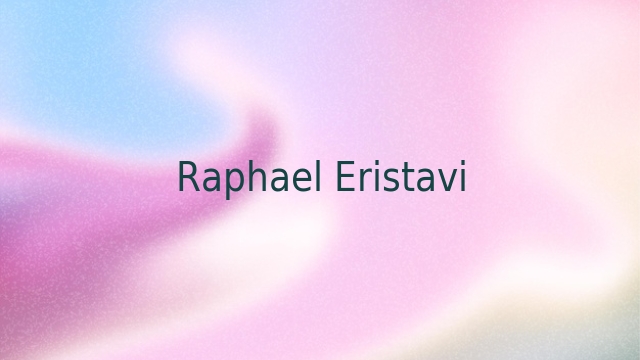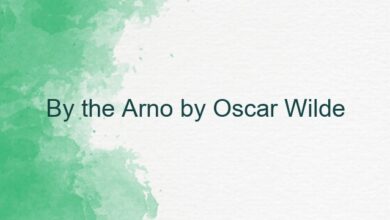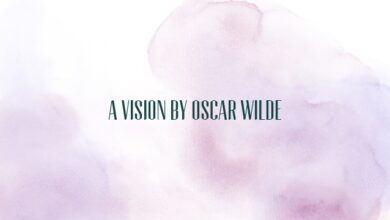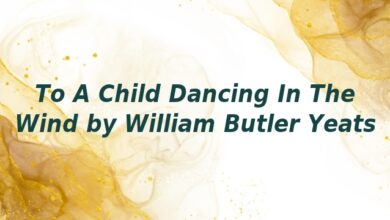
Georgian poet, scholar, and journalist. Raphael Eristavi was descended from the powerful noble family of the Eristavis of Aragvi and studied in gymnasiums in Telavi and Tbilisi before starting his service in the Russian viceroy’s administration. He eventually became a member of the Caucasian Censorship Committee. Eristavi contributed articles on various issues to the journal Kavkaz and played an important role in establishing the Georgian Museum, Georgian theater, and the Society for the Advancement of Learning Among the Georgians. From 1884–1886, he directed the Georgian Drama Society and participated in the scientific study of the text of Shota Rustaveli’s Vepkhistkaosani (The Knight in Panther’s Skin) poem in 1882.
Eristavi’s first major work appeared in 1852 when the journal Tsiskari published his story Oborvanets (in Russian) followed by his first Georgian novelette, Nino, in 1857. In later years, he wrote the poems Ghvino (1868) Tandilas dardi (1882), Beruas chivili, Beruas chafikreba (1883), Aspindzis omi, Tamariani (1887), Dedaena, Neta ras stiri dediko?, Ras erchi mag bichs tataro (1881), Samshoblo khevsurisa (1881) ,and others. Eristavi also tried vaudevilles, and his first play, Mbrunavi stolebi, appeared in 1868 followed by Dedakastma tu gaitsia, tskhra ugheli kharis umdzlavresia (1870), Jer daikhotsnen, mere iqortsines, Suratebi chveni khalkhis tskhovrebidan, and others.
Through his journalism and scholarship, Eristavi played an important role in the development of Georgian ethnography and folk studies. He traveled widely all over Georgia and studied in detail the traditions in the mountainous regions of Georgia, especially in Khevsureti, Pshavi, Tusheti, and Svaneti. His works attracted the Russian public by their fluent Russian narrative and the interesting materials which Eristavi retrieved from his travels. Together with Ilia Chavchavadze, he published Glekhuri simgherebi, leksebi da andazebi which compiled folk songs and poems; in 1873, he also published Kartuli sakhalkho poezia on Georgian folk poetry, and four years later, he authored a book on Georgian proverbs and riddles. In the 1870s, Eristavi helped develop Georgian lexicology and technical terminology and produced several dictionaries, including the Latin-Russian-Georgian Plant Dictionary, Georgian-Russian-Latin Language Dictionary, and the first edition of Sulkhan-Saba Orbeliani’s Kartuli Leksikoni (1884). His fiftieth jubilee was a national event celebrated by many poets and public figures.
Poems
THE LAND OF THE KHEVSURIS
The land where I was born and reared on lullabies and loving care,
Where I with youthful hand and heart flung flashing arrows in the air,
Where now my parents’ bones repose, is my dear motherland so fair.
Not for all the trees in Eden would I these rugged cliffs exchange,
Nor for paradise undreamed of would I my native land exchange!
I love the mounts that rear their heads adorned with never-melting snow,
The crags where eagles dare not perch, where mighty torrents deafening flow,
And there to banquet on deer’s flesh as did my fathers long ago.
Not for all the trees in Eden would I these rugged cliffs exchange,
Nor for paradise undreamed of would I my native land exchange!
Though beautiful are flowery vales where silver brooklets winding sigh,
Yet towards Khevsuri’s rocky mounts my heart and soul with yearning fly,
Life in the valleys I’d renounce for death midst native mountains high.
Not for all the trees in Eden would I these rugged cliffs exchange,
Nor for paradise undreamed of would I my native land exchange!
I never longed for wealth or fame that fortune lavishly can pour,
Nor dreamed of golden palaces with warriors and slaves galore;
My wish is but to live and die for the highlands I adore!
Not for all the trees in Eden would I these rugged cliffs exchange,
Nor for paradise undreamed of would I my native land exchange!
Can anything be dearer, sweeter than my mother’s smile or hand,
Or gem as precious as the rocks and mountains of my native strand?
The lives of men are swayed by love for one God and one ‘motherland.
Not for all the trees in Eden would I these rugged cliffs exchange
Nor for paradise undreamed of would I my native land exchange!
SESSIA’S THOUGHTS
Dust am I, to dust I cling;
A rustic born, my life is one
Eternal strife and endless toil,
And endless woe… till life is gone.
I plough, I sow, I labour on,
With muscles strained, in sun and rain.
I scarce can live on what I earn,
And tired and hungry I remain.
The owner of the land torments me;
Even the tiny ant’s my foe.
For townsfolk, priests and native country
In blood-like sweat I plough and sow…
How long, O God, this endless grind,
This life of sorrow and of toil?
Alas! I fear that death alone
Will bring me rest within this soil!





